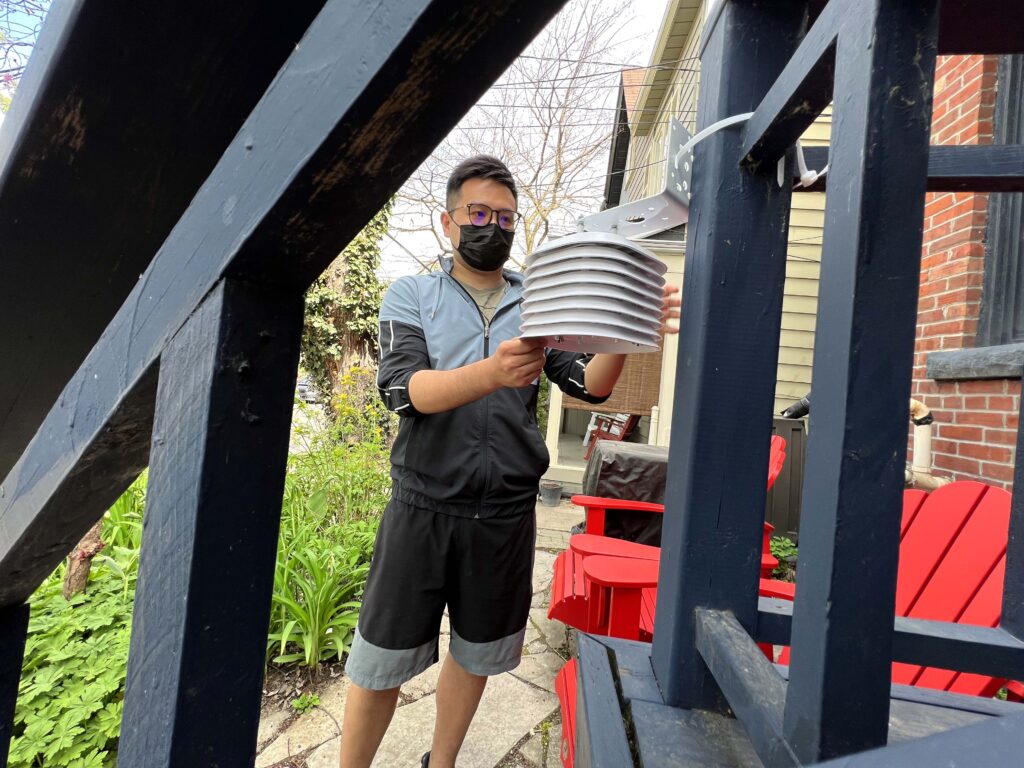
An ambitious project to install 200 sensors across Toronto is underway. The study is gathering data on temperature and humidity over several summers as part of a heat study funded by the Canadian Institutes of Health Research (CIHR).
The Transportation and Air Quality (TRAQ) research group, within the Department of Civil & Mineral Engineering (CivMin) at the University of Toronto, is collecting data on small-scale variations in ambient temperatures across Toronto. The project is headed by lead investigator Prof. Scott Weichenthal from McGill University in cooperation with CivMin’s Prof. Marianne Hatzopoulou.
Heat waves harm/kill people, particularly vulnerable populations, through a variety of pathways. These events are expected to become more frequent and more severe in the coming years. “Our team will build models to predict high-resolution variations in summer air temperature; there is a wide range of epidemiologists on the team who will use this information and link it to health outcomes to better understand the effects of heat on vulnerable urban populations” says Prof. Hatzopoulou.
The sensors are to be spread across the GTA, while covering a range of urban environments. The group hopes to not only monitor from residential sites, but also also install sensors in green spaces, such as parks or conservation areas. The team will also develop interactive web-based tools to communicate the findings with public health officials and community members.
By Phill Snel
SENSOR INSTALLATION SITES NEEDED
If you live in the GTA, have a front porch, backyard, or a first-floor balcony, please consider volunteering to host one of our sensors by filling out the following form: CIHR Heat Grant – Toronto 2022 sampling campaign (google.com). Where necessary, the team can install a pole for the monitor to perch atop of. No external power is required, so if you’ve not thought of getting involved in science, unless it was by a ten-foot pole, then this is your opportunity. If interested in participating, please fill out the form link above.